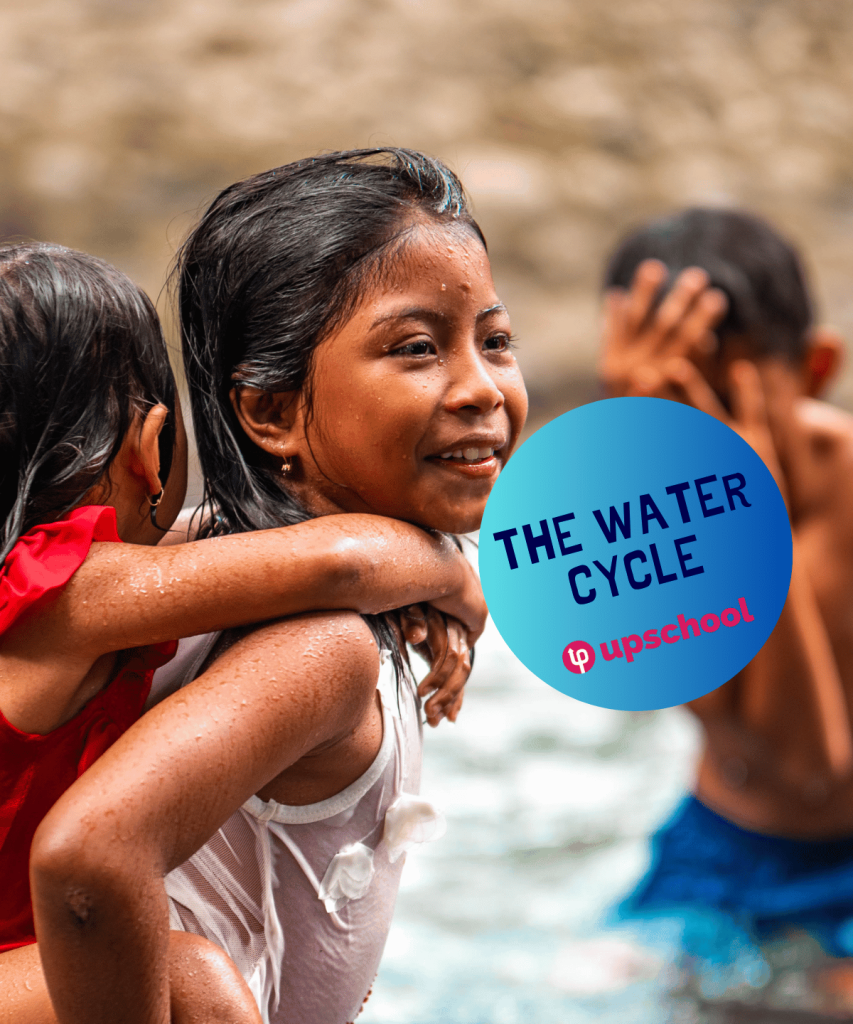The Water Cycle – The Journey of a Droplet
This short course is designed to immerse students in the fascinating world of the water cycle, exploring its crucial role in sustaining life on Earth. Through a series of engaging activities, students will dive into key scientific concepts related to the water cycle, rivers, and the environment, while creating projects that bring these ideas to life. The course is accessible to students everywhere, fostering an understanding of the water cycle’s importance and encouraging stewardship of our natural resources.

Goal 14: Life Below Water

Goal 6: Cleanwater and Sanitation
100% Free Course
What is this Course About?
Get ready to embark on an educational adventure that highlights the interconnectedness of water, life, and the environment. Throughout this course, you will explore the stages of the water cycle, from evaporation and condensation to precipitation and collection. By understanding how water moves through the environment, you’ll learn how to protect and preserve this precious resource.
Students will engage with each topic through hands-on activities, including creating a water cycle diorama, participating in group projects, and reflecting on how their actions can impact the environment. This course offers a unique opportunity to learn beyond the traditional classroom setting, fostering knowledge, creativity, and environmental responsibility.
Skills We Will Cover
- Scientific Understanding: Explore the science behind the water cycle and its impact on living organisms and the Earth’s surface.
- Environmental Stewardship: Learn how to protect and manage natural resources sustainably.
- Collaboration: Work with peers on projects that promote awareness and conservation of water resources.
- Creative Expression: Use art and design to represent scientific concepts and communicate ideas effectively.
- Critical Thinking: Analyze the effects of human activity on the environment and develop solutions to protect water systems.
What Will We Create?
Throughout this short course, you will participate in activities designed to deepen your understanding of the water cycle. Each activity will focus on a different aspect of the cycle, such as precipitation, evaporation, or how human activities impact water systems. Your task will be to create a personalized Water Cycle Project, where you’ll compile key lessons learned and practical tips for preserving water resources. Once your project is complete, you can share it with others to inspire positive change.
Lesson Plans
Teachers will have access to thoughtfully crafted activity plans that align with the NSW curriculum and can be adapted to meet local educational standards. These plans ensure that both teachers and parents can tailor the learning experience to the needs of their students, making it easy to integrate the course into any curriculum.
Real-World Learning
Throughout this short course, students will be encouraged to apply their learning to real-world situations. They will reflect on how water conservation and responsible usage can lead to positive changes in their daily lives and the world around them.
Creating a Water Cycle Project
Students will create a project summarizing the key lessons they’ve learned, along with actionable steps to conserve water. This project will serve as a guide to understanding and protecting the water cycle. Students will also engage in creative tasks, such as designing posters, building dioramas, or participating in community service, all of which will be included in the project and shared as part of their contribution to promoting environmental stewardship.

-
LevelIntermediate
-
Total Enrolled451
-
Last UpdatedAugust 30, 2024
